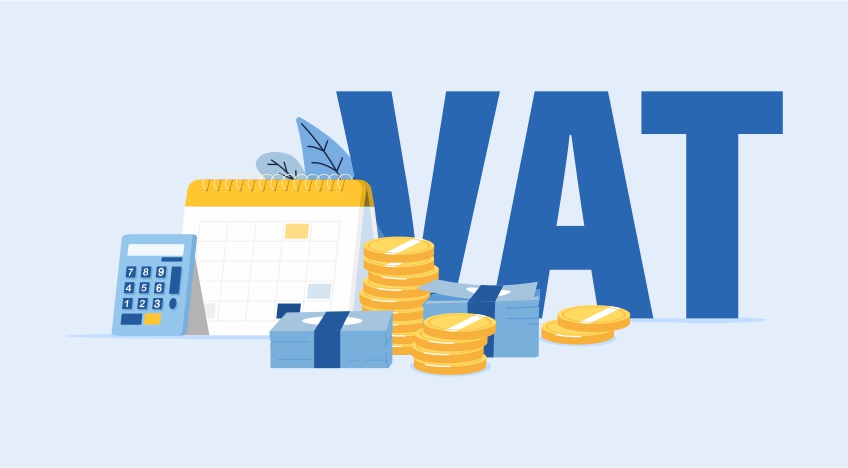Value Added Tax (VAT) is a consumption tax levied on the value added to goods and services at each stage of production and distribution. It is an essential source of revenue for the Turkish government, contributing significantly to the country’s fiscal resources.
In this article, we will explore the fundamentals of VAT in Turkey, including its regulations, implementation, and implications for businesses and consumers.
VAT Regulations in Turkey
The VAT system in Turkey is governed by the Value Added Tax Law, which was first introduced in 1985 and has since undergone several amendments to align with evolving economic conditions. The primary authority responsible for overseeing VAT implementation is the Revenue Administration, operating under the Ministry of Treasury and Finance.
As of my knowledge cutoff in September 2021, the standard VAT rate in Turkey was 8%. However, certain goods and services are subject to reduced rates, including basic foodstuffs, books, pharmaceuticals, medical equipment, and public transportation, which are subject to 1%, 8%, or 18% VAT rates. There are also exemptions for specific goods and services, such as exports and some financial services.
VAT Registration and Compliance in Turkey
Businesses operating in Turkey that exceed certain annual turnover thresholds are required to register for VAT. The registration threshold may vary from year to year based on economic conditions. VAT-registered businesses are obligated to comply with the VAT Law, including collecting VAT on taxable transactions and remitting the collected VAT to the tax authorities.
Businesses must issue VAT invoices for transactions subject to VAT, and these invoices must meet specific requirements outlined by the tax regulations. VAT returns must be filed periodically, usually on a monthly basis, detailing the VAT collected and paid on transactions. Failure to comply with VAT regulations can result in penalties and fines imposed by the Revenue Administration.
VAT Refund for Foreigners in Turkey
Foreign companies that are not established in Turkey but have incurred VAT on eligible expenses within the country may be eligible for a VAT refund. The VAT refund process for foreigners involves submitting the necessary documentation and meeting specific criteria set by the Revenue Administration. It is essential for foreign companies to carefully follow the prescribed procedures to ensure a smooth VAT refund process.
VAT in International Trade
Turkey is a member of the World Trade Organization (WTO) and the European Union Customs Union, which influences its VAT regulations in international trade. When exporting goods and services to countries outside the EU Customs Union, VAT is generally zero-rated, meaning the exporter does not charge VAT to the foreign customer. However, the exporter must keep proper documentation to substantiate the VAT-exempt status of the export.
For imports from countries outside the EU Customs Union, VAT is charged at the applicable rate at the point of importation. Import VAT is usually collected by the customs authorities, and importers may be required to pay this VAT before their goods are released for domestic use.
VAT Implications for Businesses
VAT has significant implications for businesses in Turkey, affecting their pricing strategies, cash flow, and compliance requirements. Businesses must carefully manage VAT collection and payment, ensuring they charge the correct VAT rates for their products and services. Failure to comply with VAT regulations can lead to financial penalties and damage the company’s reputation.
VAT can also impact a business’s competitiveness, particularly in industries with slim profit margins. Companies must consider the VAT implications when pricing their products and services to remain competitive while meeting their tax obligations.
VAT Implications for Consumers
As a consumption tax, VAT affects consumers directly. The VAT levied on goods and services is ultimately borne by the end consumer, as it is included in the final price of the product. The standard VAT rate of 8% applies to most goods and services purchased by consumers.
Reduced VAT rates on essential items like food and public transportation can help alleviate the cost burden on consumers, particularly low-income households. However, these reduced rates may also lead to potential complexities in tax administration.
VAT Challenges and Future Developments in Turkey
While VAT is an essential revenue source for the Turkish government, there are challenges to address. VAT evasion and fraud pose significant concerns, as they can lead to revenue losses for the state. To combat these issues, the Revenue Administration continues to implement measures to strengthen VAT compliance and enforcement.
Moreover, as global economic and trade dynamics evolve, Turkey may revisit its VAT regulations to adapt to changing circumstances. Such revisions could include adjustments in VAT rates, expansion or contraction of VAT exemptions, and enhancements in VAT refund processes for foreigners.
Conclusion
Value Added Tax (VAT) is a critical component of Turkey’s taxation system, contributing significantly to the government’s revenue. Understanding VAT regulations, compliance requirements, and implications is essential for businesses operating in Turkey to ensure proper financial management and compliance. For consumers, VAT directly affects the prices of goods and services they purchase. As Turkey’s economic landscape continues to evolve, the government may review and refine its VAT policies to align with changing economic conditions and global trade dynamics.








Comments are closed